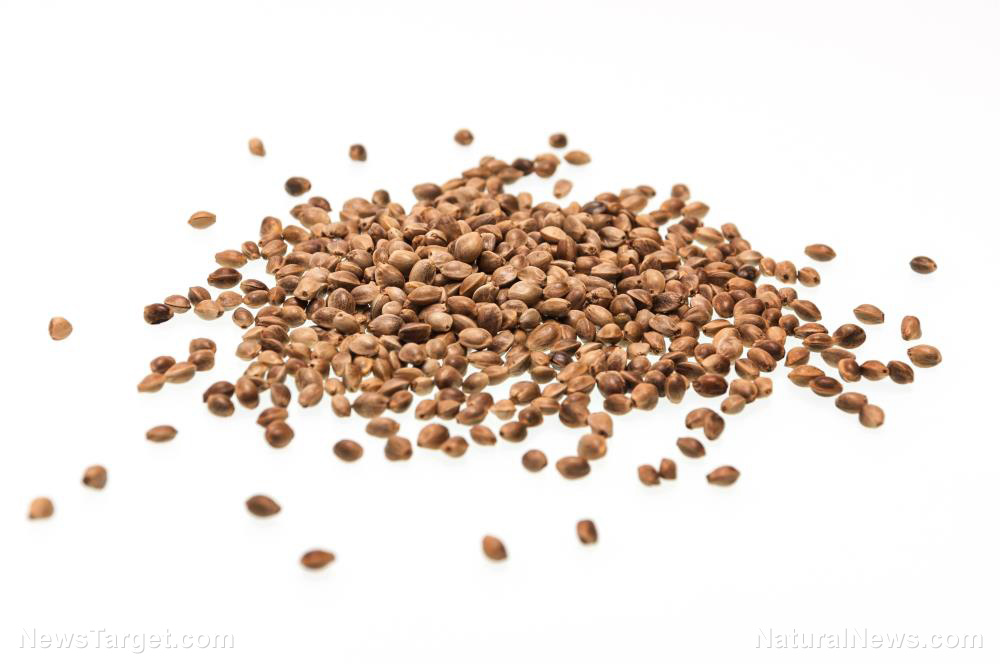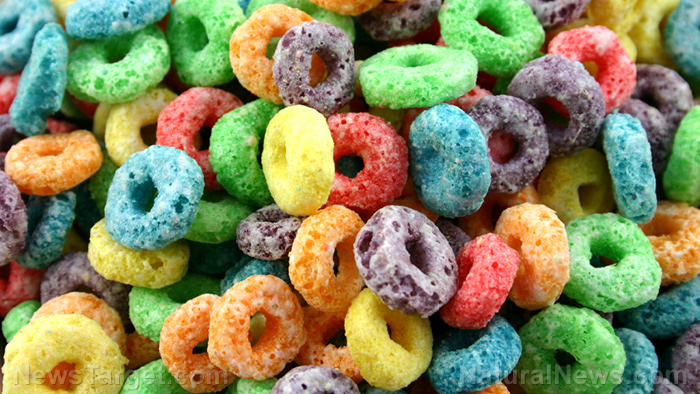Making your own hemp milk is easy and the health benefits beat store-bought cow’s milk
05/29/2019 / By Lance D Johanson

Growing up, children are bombarded by dairy advertisements and the constant message that cow’s milk will make them grow “big and strong.” Subsidized and popularized, cow’s milk is affordable and convenient, served up in cartons with every school lunch and splashed in cereal bowls morning after morning.
What if, after all these years of dairy brainwashing, there was a drink that didn’t cause lactose intolerance, a drink that could be more readily digested? What if there was a drink that could provide a more complete spectrum of protein, amino acids, healthy fats, dietary fiber, and minerals? Hemp milk is becoming a popular alternative to cow’s milk and for good reason.
Hemp seeds provide healthy fats and amino acids for proper heart and brain development
Hemp milk is not really “milk” at all. This product does not come from an animal. Hemp milk is made by blending the seeds of Cannabis sativa with plain water. The seeds of Cannabis sativa do not contain the psychoactive compound tetrahydrocannabinol (THC), so you won’t get “high” after drinking hemp milk, but hemp seeds do contain a high concentration of healthy fats that help build the brain and the heart. In fact, hemp milk contains more protein and healthy fat per ounce than every other plant-based milk, including almond milk.
In its rawest form, hemp milk is a plant-based water infusion. Many commercial varieties contain sweeteners, salt, or thickeners to make the product appear and feel more like “milk.” It’s nutty flavor and creamy consistency is a delicious alternative to cow’s milk; therefore, hemp milk is great in smoothies, cereal, and coffee.
Ounce for ounce, hemp milk contains about the same amount of fat as cow’s milk, but hemp milk contains fewer calories and carbohydrates. One cup of unsweetened hemp milk contains 7.3 grams of fat, 1.3 grams of carbohydrates, 4.7 grams of protein, and only 83 calories. Because it contains a lesser amount of calcium than cow’s milk or almond milk, hemp milk is often fortified with calcium, vitamins A, B12 and D. In its raw form, hemp milk only contains 2 percent of the daily value of calcium, but this calcium is more readily assimilated in the human body.
Store-bought cow’s milk, on the other hand, is pasteurized, its enzymes destroyed. The pasteurization process changes the casein protein molecules, damaging the enzymes. Because of this, the pancreas is forced to produce its own digestive enzymes in order to break the product down.
Calcium isn’t the only nutrient needed for building the body, anyway, and hemp milk provides two essential fatty acids that help the body build new tissues and cell membranes. The fat in hemp milk is very beneficial and consists mainly of linoleic acid (omega-6) and alpha linolenic acid (omega-3). For this reason, hemp milk helps protect against heart disease and helps build developing brains. Because it is also rich in arginine, hemp milk boosts nitric oxide levels in the blood and may improve circulation and protect against heart disease.
Not to be outdone is the quality of protein found in hemp milk. Its two main proteins are edestin and albumin. Hemp seeds are unique because they are one of the rare plant-based foods that contain all the essential amino acids that humans must get from food in order to function correctly. As a complete protein, hemp milk is more easily digested, and its nutrients are used more efficiently throughout the body to improve cellular functions.
Making your own hemp milk is easy
- To make your own hemp milk, start by pouring three cups of water in a blender.
- Then, add ¾ cup of hemp seeds.
- Add 20,000 IU vitamin D to fortify the drink.
- Add stevia leaf extract, maple syrup, or raw honey for sweetness and blend the mixture until it is smooth.
- To remove any seed particles, use cheesecloth or a nut milk bag to strain them off.
- The drink can be refrigerated for up to five days in a glass jar.
Instead of pumping cows full of antibiotics and forcing them to be a “wet nurse” for the human population, it’s time to unleash hemp agriculture across America to provide the population with a more usable source of nutrition and to serve up a tasty drink that could help build the body, the brain, and the heart.
Sources include:
Submit a correction >>
Tagged Under:
brain health, dietary fiber, digestion, heart health, minerals, skin health
This article may contain statements that reflect the opinion of the author
RECENT NEWS & ARTICLES
COPYRIGHT © 2017 TOP 10 GROCERY SECRETS





















